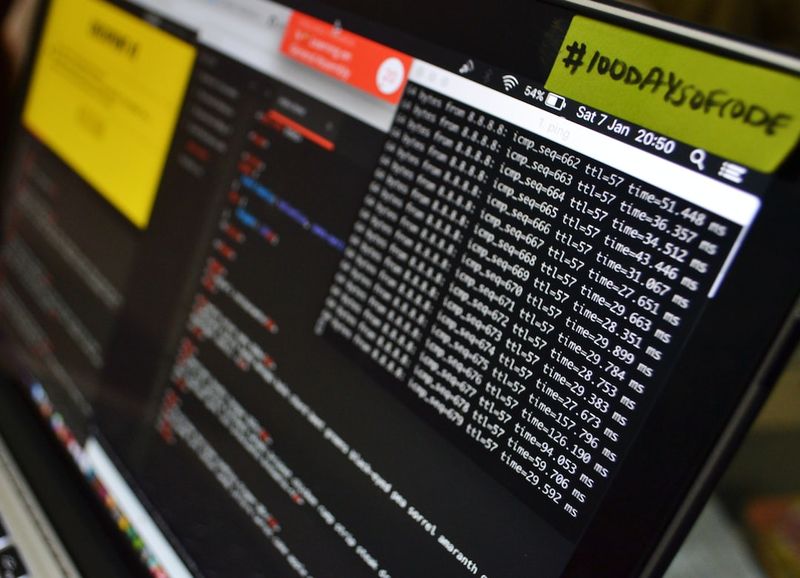Massive Data Leak Exposes South African Department of Defence Personnel Details
A 1.6TB file containing personnel details of the South African Department of Defence has been discovered on a leak site. The data leak was claimed by a group called “Snatch,” who stated that the file contained “exclusive information with billion dollar contracts, generals’ call signs, and personal information.” Leaked documents seen by researchers reveal extensive lists of names, landline and cellphone numbers, email addresses, birthdates, and job titles. All the phone numbers were from the Pretoria region, where the Department of Defence is located.
Denial and Response
In response to the alleged data leak, Siphiwe Dlamini, spokesman for the Department of Defence, denied any such leak, while SANDF spokesperson Brigadier General Andries Mahapa dismissed claims about leaked or stolen data as “fake news.” However, the Snatch group responded with a message via the encrypted messaging app Telegram, stating that they had attempted to inform the country’s leadership about the situation but were ignored.
The South African Department of Defence did not respond to requests for clarification regarding the incident and the authenticity of the data.
Understanding the Event: Snatch Group
The security services provider Orange Cyberdefense was able to discover the leaked data through its automated research and customer assistance processes. According to Charl van der Walt, head of security research at Orange Cyberdefense, the Snatch group has been active since 2019, operating consistently without apparent connections to any other known cybercriminal groups. Van der Walt describes Snatch as a “low-burn, consistent kind of gang,” noting that they employ pure data extortion in approximately 10% of their attacks.
At the time of publishing, the leaked data had received 16,922 views and had been downloaded by 782 individuals, relatively low numbers compared to previous leaks by the same group.
Concerns and Next Steps for the Government
If a breach has indeed occurred, the South African information regulator must be notified. The regulator has acknowledged media reports about the alleged security compromise at the Department of Defence. It is worth noting that this incident follows other prominent cyberattacks on South African government entities, such as the Department of Justice and Constitutional Development and the South African National Space Agency.
This string of cyberattacks raises concerns about the overall cybersecurity posture of the South African government and its ability to safeguard critical systems and sensitive information. It is imperative that comprehensive investigations be conducted to determine the extent of the breach, assess the damage, and strengthen cyber defenses against future attacks.
Guarding Against Data Breaches and Strengthening Cybersecurity
This incident highlights the importance of robust cybersecurity measures for all organizations, especially those dealing with sensitive data. Governments, in particular, are entrusted with protecting confidential information that affects national security and individual privacy. To better safeguard against data breaches, organizations should:
1. Implement Strong Data Security Measures
Organizations, including government agencies, should implement robust security measures such as multi-factor authentication, encryption, and regular security audits to ensure the protection of critical data. Regular employee training on cybersecurity best practices can help create a security-conscious culture within the organization.
2. Conduct Regular Vulnerability Assessments
Regular vulnerability assessments and penetration testing can help identify potential weaknesses in an organization’s systems and networks. By proactively addressing vulnerabilities, organizations can prevent unauthorized access and minimize the risk of data breaches.
3. Collaborate with Cybersecurity Experts
Engaging with cybersecurity experts can provide organizations with valuable insights and expertise in identifying and mitigating security risks. Security service providers like Orange Cyberdefense play a crucial role in detecting and responding to threats.
In conclusion, the alleged data leak at the South African Department of Defence highlights the urgent need for the government to address cybersecurity vulnerabilities and bolster its cyber defense mechanisms. The incident also serves as a reminder to all organizations to prioritize cybersecurity measures and remain vigilant in the face of ever-evolving cyber threats.
Keywords: Military, Allegations, South African Department of Defence, Stolen Data, Truth, Data Breach, Cybersecurity, Investigation, Government, Scandal

<< photo by Seun Oderinde >>
The image is for illustrative purposes only and does not depict the actual situation.
You might want to read !
- Financial Firms Hit by MOVEit Cyberattacks Navigate Legal Battle
- Data Breach Probe Puts Genworth Financial in Hot Water
- China’s ‘Flax Typhoon’ Hackers: Targeting Taiwan’s Government, Microsoft Reveals
- Investigating the Hack Crew: Unraveling Claims of Stolen Data
- Chinese Hacking Group Amplifies Cyber Threats: Targeting Government, Military, and Telecom with Barracuda Zero-Day
- Ransomware Rampage: The Urgent Need for Citrix NetScaler Patching
- London Police Put on High Alert After Massive Data Breach
- The Growing Threat of Ransomware Attacks: Rackspace and the Cost of Cleanup
- The Mom’s Meals Data Breach: Understanding the Impact and Taking Action
- The Growing Dangers of SIM-Swapping: Lessons from Kroll’s Crypto Breach
- VMware Takes Swift Action to Secure Network Monitoring Tool
- Microsoft Joins Organizations in Criticizing UN Cybercrime Treaty
- Somalia’s Censorship Overreach: Restricting Digital Communication Tools
- “Unleashing the Power: FBI and DOJ Counterstrike Shuts Down Lucrative Botnet Behind Ransomware Epidemic”
- The Critical Gap in Your Breach Response Plan: What You Need to Know
- The Hunt for Justice: Victor Zhora’s Battle to Catalog Evidence of Russian Hackers’ Cyberwar Crimes in Ukraine
- Navigating the Complexities: The Urgent Need for Contextualized Cybersecurity Solutions
- Data Leak Whopper: Burger King’s Privacy Slip-Up




